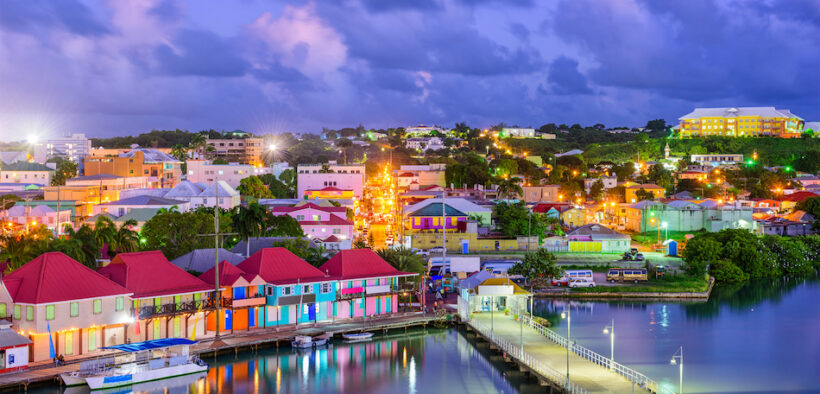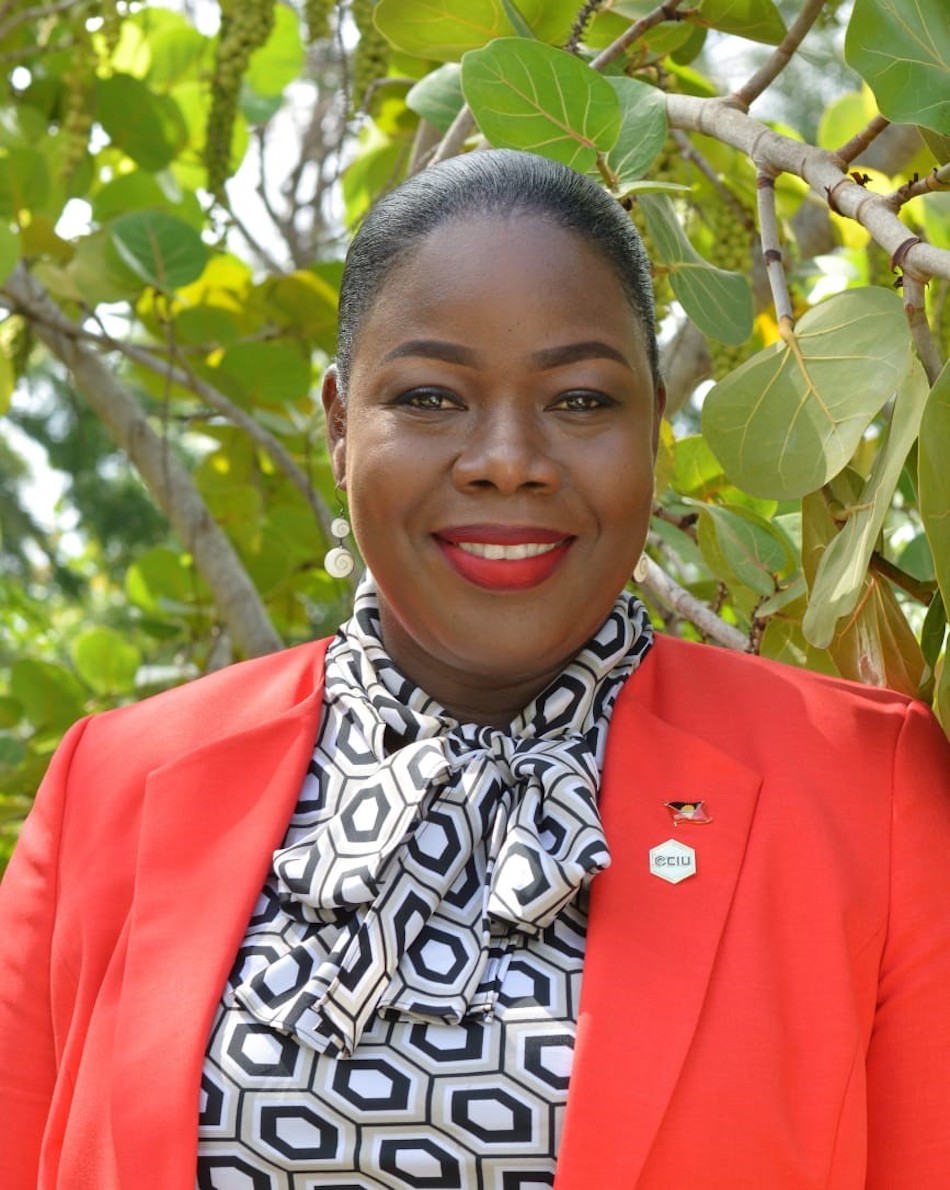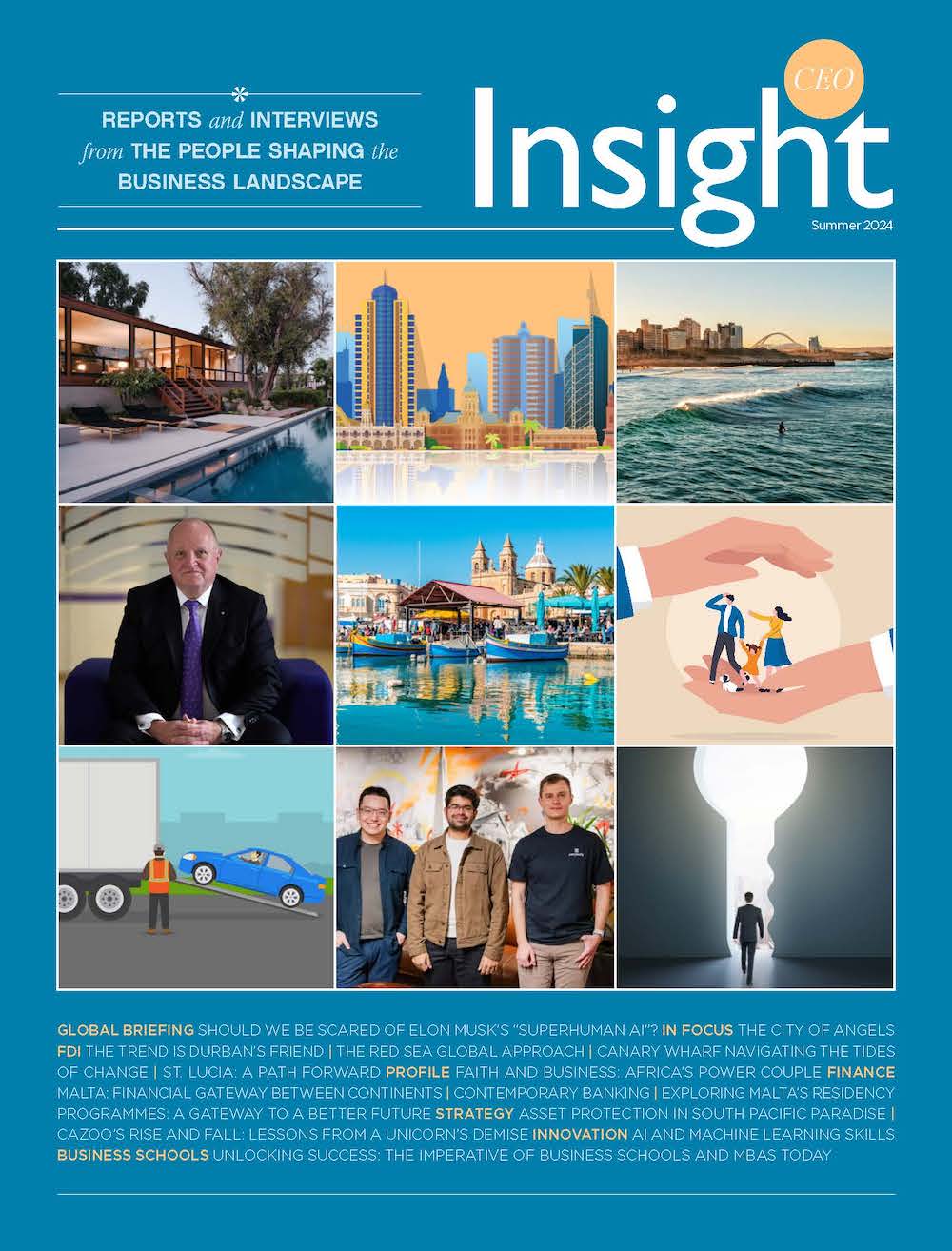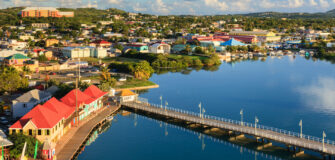The Gateway to Paradise
Share

Antigua & Barbuda’s Citizenship by Investment Programme (CIP) stands tall in the Investment Migration Industry. In conversation with CEO Insight, CEO of Antigua & Barbuda’s Citizenship by Investment Unit (CIU), Mrs. Charmaine Donovan, reveals the secrets behind the CIP’s success. She talks of how it continues to evolve and adapt to remain vital and relevant to investors, and at the same time a key driver of this leading Caribbean nation’s socio-economic development.
CEO Insight: Antigua & Barbuda Prime Minister, Gaston Browne has recently spoken to a significant rise in applications for the country’s Citizenship by Investment Programme (CIP) in 2021 versus the previous year, with the figure of 492 exceeding even 2019’s pre-pandemic figure. To what do you attribute this encouraging statistic?
 Mrs. Charmaine Donovan: Since the inception of our Citizenship by Investment Programme (CIP), we have proven ourselves as the ones to be watched in the Investment Migration Industry. Our numbers have steadily increased and even continued to show promise during and after the pandemic. We are cognisant that the CIP is a critical element to the revenue flows in Antigua and Barbuda. As such, we were keen on maintaining operations during the pandemic by making a number of improvements to our staffing protocols and have therefore never closed our doors. We re-engineered our operational procedures to include our fully operational Agent’s portal to ensure optimal performance. This portal enables Agents to upload, submit and track applications on behalf of their clients. Documents required for the application process were also simplified, and timing of their submission was modified based on the primary documents required at each stage of the application life cycle. Electronic submission of applications is a permanent feature of the Programme, as this was a planned major objective in enhancing overall efficiency and the general management of applications.
Mrs. Charmaine Donovan: Since the inception of our Citizenship by Investment Programme (CIP), we have proven ourselves as the ones to be watched in the Investment Migration Industry. Our numbers have steadily increased and even continued to show promise during and after the pandemic. We are cognisant that the CIP is a critical element to the revenue flows in Antigua and Barbuda. As such, we were keen on maintaining operations during the pandemic by making a number of improvements to our staffing protocols and have therefore never closed our doors. We re-engineered our operational procedures to include our fully operational Agent’s portal to ensure optimal performance. This portal enables Agents to upload, submit and track applications on behalf of their clients. Documents required for the application process were also simplified, and timing of their submission was modified based on the primary documents required at each stage of the application life cycle. Electronic submission of applications is a permanent feature of the Programme, as this was a planned major objective in enhancing overall efficiency and the general management of applications.
“Our development partners have been working towards expanding the investment opportunities under the real estate option to include the construction of new and expansions in existing high end properties.”
As a part of our Programme, applicants are required to spend a 5-day period within the first five years of their citizenship. At that time, applicants are required to swear or affirm the Oath of Allegiance. In light of the global pandemic, which resulted in restricted travel, the Government saw the need to make legislative changes to this requirement, suspending the need to travel to Antigua and Barbuda to take the oath. This allows successful applicants to take the oath by designating overseas offices and missions at which they would wish to take the oath, as well as by the use of various audio-visual platforms. Individuals may also take the oath in their respective jurisdictions using a local notary public. These advancements have considerably reduced the processing time, resulting in the continuing growth of our Programme post-pandemic.
CEO: With Covid-19 having influenced the investment landscape across the globe, how has Antigua & Barbuda’s CIP evolved and adapted to remain relevant and attractive to investors, without impacting its continued capacity to contribute to the nation’s socio-economic fortunes?
Mrs. Charmaine Donovan: The pandemic has served to strengthen the resilience and flexibility of our Programme. In addition to maintaining access throughout the pandemic, as well as the operational changes referred above, a critical programme enhancement has been our comprehensive expansion of the definition of ‘Dependent’. Prior to November 2020, a dependent was the applicant’s spouse, offspring or adoptive child up to 28 years old, and parents or grandparents of the spouse or principal applicant. However, the term has now been expanded to include:
- Children of the principal applicant and their spouse, up to age 30 and financially dependent on the principal applicant;
- A sibling of the principal applicant, or of his or her spouse, if unmarried;
- A current or future spouse of the principal applicant;
- A current or future spouse of dependent children where the dependent child is financially dependent on the principal applicant; and
- A future child of a dependent child (the principal applicant’s grandchild).
- A child of the principal applicant, or his/her spouse, who is 18 years or older but who is physically or mentally handicapped and who is living with and is fully supported by the principal applicant;
- A parent or grandparent of the principal applicant, or his or her spouse, who us 55 years of age or older and who is financially dependent on the principal applicant; and
- A sibling of the principal applicant, or of his or her spouse, if unmarried.
CEO: The majority of Antigua & Barbuda’s CIP participants qualify via a contribution to the National Development Fund (NDF). With data suggesting that the shadow cast by Covid-19 may now be waning, do you anticipate an uplift in investments in real estate and local businesses, as the world opens up again? Is a greater share of investments into these areas a broad objective and could we see greater incentivisation to achieve such a goal?
Mrs. Charmaine Donovan: Our development partners have been working towards expanding the investment opportunities under the real estate option to include the construction of new and expansions in existing high end properties. Our ongoing research into the market has indicated that the pandemic has driven persons to seek out investment opportunities as it relates to alternative options for relocation. As such, we have integrated the aforementioned expansions as well as the lowered investment real estate threshold of US $200,000.00 into the marketing plan for 2022, which will serve to make these investment areas more attractive, thereby increasing the investor interest long-term.
CEO: Antigua & Barbuda is developing a CIP reputation as best for large families. Why is this?
Mrs. Charmaine Donovan: Antigua and Barbuda’s Programme is unique in that it offers options for all categories of investors. Due to the cost effectiveness of the National Development Fund, this option has historically been the most high-performing. The threshold for the NDF option requires a one-time investment of US$100,000 for a family of up to four persons, and US$125,000 for a family of five and over. The addition of the University of the West Indies option, which also requires a one-time payment, has received increased interest. Participation in this option will entitle one member of the family to a one year, tuition only, scholarship at the University. These opportunities for investment have become the market leaders in the sub region. The aforementioned options are suitable for growing families, particularly the UWI option, which caps the eligible investment at US$150,000 including fees for a family of 6 persons.
CEO: Beyond investment volumes, what other metrics and yardsticks are used to determine the efficacy of Antigua & Barbuda’s Citizenship by Investment approach?
Mrs. Charmaine Donovan: The Programme is and continues to be one of the major contributors to the county’s socio-economic development. It is the primary source of critical foreign direct investment which impacts the delivery of public services, provides capital to enterprises and expanding tourism projects, thereby improving and increasing the country’s valuable room stock. Among the public services supported by CIP revenues are:
- Support to Government housing projects to provide affordable homes for Antiguans and Barbudans;
- Upgrading of the central hospital, clinical health services & the procurement of diagnostic equipment for The Cancer Center Eastern Caribbean;
- Job creation in the public and private sectors;
- Capacity building in new enterprises and the tourism sector;
- The addition of the University of the West Indies option has increased interest and awareness;
- Cultural Events such as Sailing Week and Carnival; and
- Support to the Government’s Pension and Social Security fund.
Notwithstanding the direct injection of revenue into the economy as mentioned above, the CIU has sought to establish a presence as it relates to corporate philanthropy. As a result, Non-Profit Organisations, public schools and sports and community organisations, to name a few, have benefitted from the Unit’s donations of tangible items, financial aid and time.
CEO: With greater mobility the primary driver for those seeking second citizenship, why choose Antigua & Barbuda over other alternatives? Why now?
Mrs. Charmaine Donovan: The Antigua and Barbuda programme is known for its foresight and innovation, and this trend can be expected to continue into the foreseeable future. The variety evident in the investment thresholds positions us uniquely in the market. This illustrates that our Programme has improved with time and will continue to evolve with the market to ensure that it maintains its relevance. Make us the choice for the ability to have visa-free access to more than 160 countries, no restrictions on dual nationality, citizenship for life, no tax on worldwide income, inheritance, capital gains or investment returns, a stable economy and democracy and a safe and secure paradise from where you can live freely and work remotely. New citizens can reside comfortably in a safer, less densely populated country which has demonstrated a greater ability to manage the pandemic. We wish to advise future applications that now is the time to invest in their future. The Antigua and Barbuda Citizenship by Investment Programme is the premier choice for second citizenship.



























